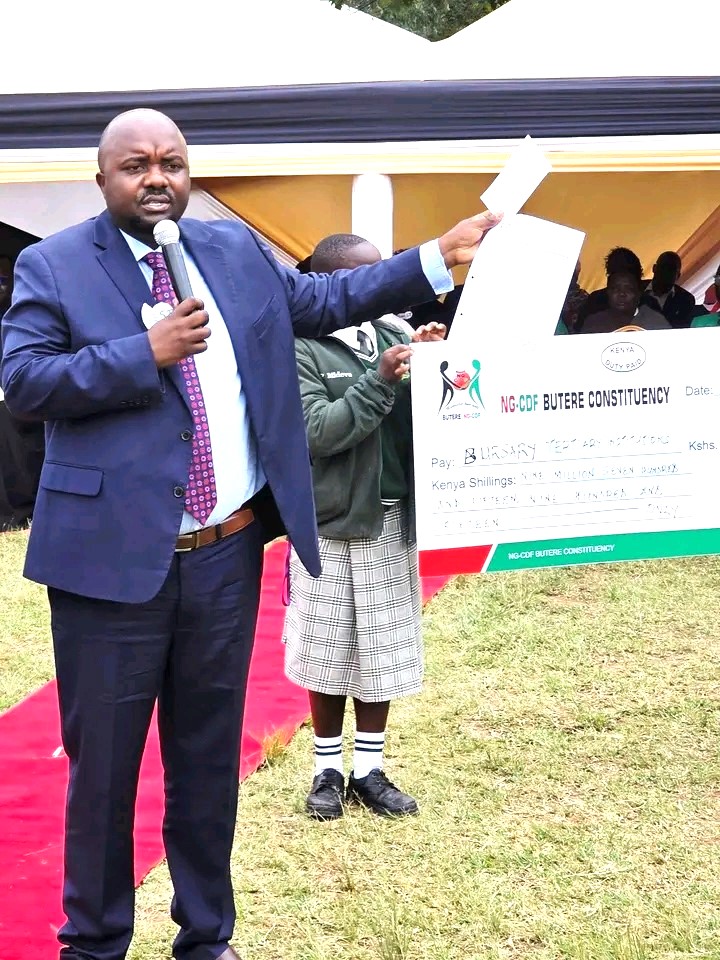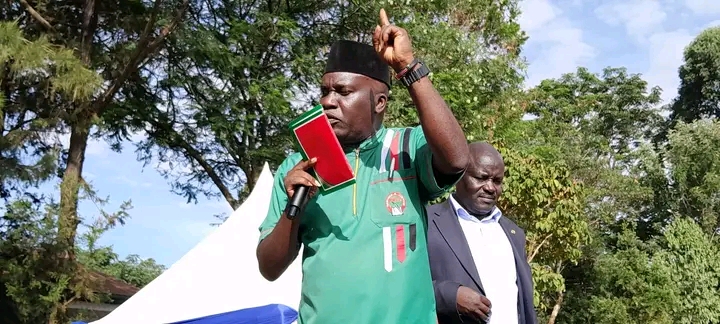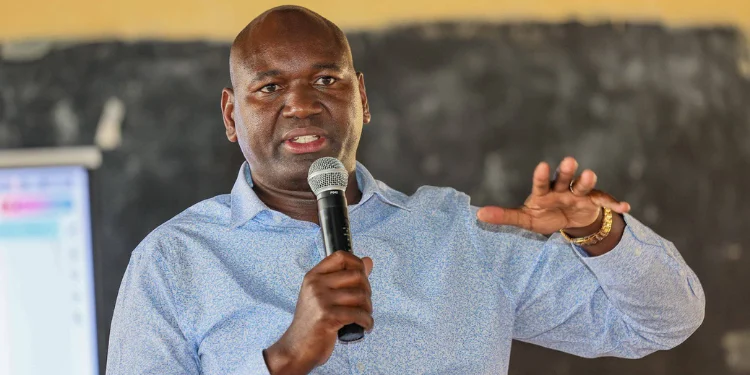The announcement that Embakasi East Member of Parliament, Babu Owino, will host a live Mathematics revision session during the ongoing national examinations has attracted mixed reactions across Kenya. To his supporters, the MP’s move symbolizes commitment to education and his own brilliance as an engineer who has mastered mathematics. To others, however, it is a classic case of political grandstanding – a populist show designed to attract attention during a politically sensitive moment in the academic calendar.
At face value, the initiative appears noble. Any effort that seeks to inspire learners, reinforce academic confidence, and offer free revision support is worth appreciating. In a country where inequalities in access to quality learning resources remain glaring, a public figure dedicating time to help candidates seems generous and patriotic. Yet, beneath the surface lies a more complex and uncomfortable truth: such actions may inadvertently undermine professional educators, blur the boundaries of examination integrity and turn national examinations into platforms for political theatre.
First, the timing of the revision is highly questionable. Kenya is currently in the middle of administering the Kenya Certificate of Secondary Education (KCSE) examinations – a process tightly managed by the Kenya National Examinations Council (KNEC) and the Ministry of Education. During this period, strict rules govern what candidates can access, study or revise. When a sitting MP announces live, nationally streamed revision sessions amid the exams, it risks creating a perception of undue influence or insider guidance. Even if the intentions are innocent, optics matter. The country has, in the past, witnessed controversies surrounding exam leaks and early exposure to test content. For this reason, anything that looks like last-minute national coaching must be approached with caution and guided by official policy.
ALSO READ;
Nandi parents urged to create conducive environment for candidates
Second, the gesture reeks of political populism rather than sustainable educational reform. Kenya’s political history is littered with examples of leaders who use education as a public relations tool. They launch bursaries with loud publicity, donate desks with TV cameras rolling and hold televised lectures to win public affection. But education reform cannot be reduced to political stunts. It requires consistent investment in teacher motivation, infrastructure, learning materials and fair allocation of resources.
A single weekend of livestreamed Mathematics revision cannot compensate for years of underfunding, poorly equipped classrooms, and overcrowded schools. True transformation comes from strengthening the education system, not elevating individual politicians as saviours of struggling learners.
Third, the initiative raises pedagogical and ethical concerns. Who reviewed or approved the content of these live lessons? Do they align with the official KNEC syllabus or the spirit of the Competency-Based Curriculum (CBC) that emphasizes learner engagement, creativity, and problem-solving? Teaching and learning are guided by professional standards and content delivered to candidates must be accurate, balanced and curriculum-aligned. Without vetting, the risk of misinformation or misrepresentation of concepts increases. Furthermore, when an elected leader assumes the teacher’s role, it subtly undermines the expertise and authority of professional educators who have spent years preparing students systematically. Education should empower teachers, not eclipse them.
Fourth, there are equity and accessibility issues. The live revision session, though free, is streamed online. This assumes that all candidates have smartphones, stable internet connections and sufficient data bundles – privileges that remain beyond the reach of thousands of learners in rural and marginalized areas. The very learners who most need academic support may therefore be excluded by the very medium meant to help them. Kenya’s education inequality is not about willingness to learn; it is about unequal access to technology, information, and resources.
Public interventions must therefore be inclusive, not exclusive. A televised or recorded session broadcast via national or community media would be more equitable than a purely online stream targeting those already digitally advantaged.
Fifth, the initiative risks politicizing education, an area that should be protected from partisanship. When politicians insert themselves directly into teaching and revision processes, they blur the separation between governance and pedagogy. What begins as academic support may quickly evolve into political branding, with students being turned into an audience for image-building rather than learning. Education must remain a neutral ground where content is delivered professionally, not politically. If Babu Owino is genuinely passionate about improving academic outcomes, he could institutionalize his efforts through structured mentorship programmes, constituency learning centres or sustainable digital libraries accessible throughout the year – not only when exams are near.
Another concern relates to sustainability and accountability. How long can such initiatives last? What mechanisms ensure consistency and quality in subsequent sessions? Kenya has a history of short-lived populist interventions that fizzle out once the spotlight fades. The country needs leaders who invest in long-term policies that uplift education standards – through legislation, policy advocacy, and transparent use of Constituency Development Funds (CDF) for school improvement – rather than headline-grabbing gestures that last a weekend.
ALSO READ;
Senate Committee hails Elgeyo Marakwet’s investment in early learning
Moreover, we must question the message being sent to students. Are we teaching them that academic success depends on sudden miracles and last-minute cramming sessions led by celebrities or that success is built through discipline, consistency and everyday learning with their teachers? The latter message is far more sustainable and truthful. National examinations should be a reflection of continuous learning, not a product of last-minute interventions, however well-intentioned they appear.
In conclusion, Babu Owino’s planned live Mathematics revision may seem generous and patriotic on the surface, but it raises legitimate concerns about timing, ethics, inclusivity and intent. Kenya’s education sector needs institutional support, not individual heroism. Our learners deserve a well-resourced, professionally managed system – not sporadic, politically flavoured interventions. Real educational empowerment will come when leaders strengthen public schools, equip teachers and create learning environments where excellence is the norm, not the exception.
Politicians can play an important role in education – but that role is best fulfilled through policy, advocacy, and resource mobilization, not through livestreamed lessons that turn national examinations into spectacles of personal glory. Education is indeed the greatest equalizer, but only when it is anchored in fairness, professionalism and integrity. Kenya must therefore look beyond political theatrics and focus on building a strong, inclusive and credible education system that empowers every learner, not just those who can tune in to a politician’s broadcast.
By Ashford Kimani
Ashford teaches English and Literature in Gatundu North and serves as Dean of Studies.
You can also follow our social media pages on Twitter: Education News KE and Facebook: Education News Newspaper for timely updates.
>>> Click here to stay up-to-date with trending regional stories
>>> Click here to read more informed opinions on the country’s education landscape






